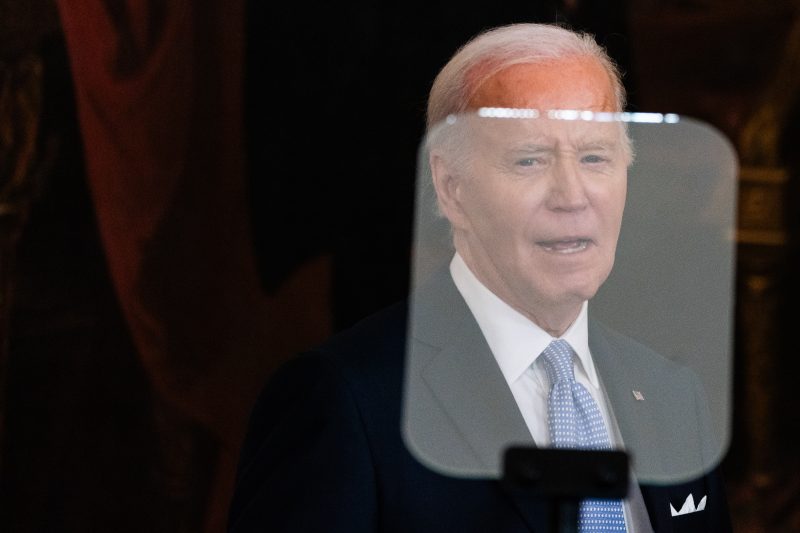In the world of politics, appearances are everything. Every move, every word, every gesture is scrutinized by the public and the media, and politicians must carefully craft their image to appear competent, trustworthy, and in control. Part of this image management involves ensuring that public figures deliver their messages seamlessly and effectively, and one tool that has become synonymous with modern political communication is the teleprompter.
Teleprompters have been a staple in political speeches and presentations for decades, providing speakers with a convenient way to read their remarks while maintaining eye contact with their audience. The device displays the speaker’s script on a screen in front of them, scrolling the text at a speed that matches the speaker’s delivery. This allows politicians to deliver their messages confidently, without the need to rely on notes or memorization.
However, the use of teleprompters has its critics, who argue that they can make politicians appear scripted and insincere. Critics claim that teleprompters can create a barrier between the speaker and the audience, preventing genuine connection and engagement. They argue that politicians who rely too heavily on teleprompters may come across as inauthentic and lacking in spontaneity.
Despite these criticisms, teleprompters remain a common sight in the world of politics. Politicians from both sides of the aisle use teleprompters to deliver speeches, debates, and public statements. In the age of instant communication and 24-hour news cycles, the pressure to perform flawlessly is higher than ever, and teleprompters offer a valuable tool for politicians to stay on message and avoid costly gaffes.
Moreover, with the rise of virtual events and remote communication, teleprompters have become even more essential. Politicians appearing on video calls, live streams, and television interviews often rely on teleprompters to ensure that their messages are delivered clearly and confidently, even from the comfort of their own homes.
In conclusion, while teleprompters may have their detractors, they play an undeniable role in shaping the way politicians communicate with the public. In a world where every word matters and the stakes are high, teleprompters provide a valuable tool for politicians to deliver their messages effectively and maintain control over their public image. Love them or hate them, teleprompters are here to stay, omnipresent accessories that continue to shape the way we experience political communication.

